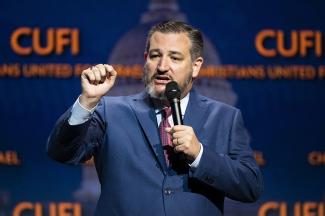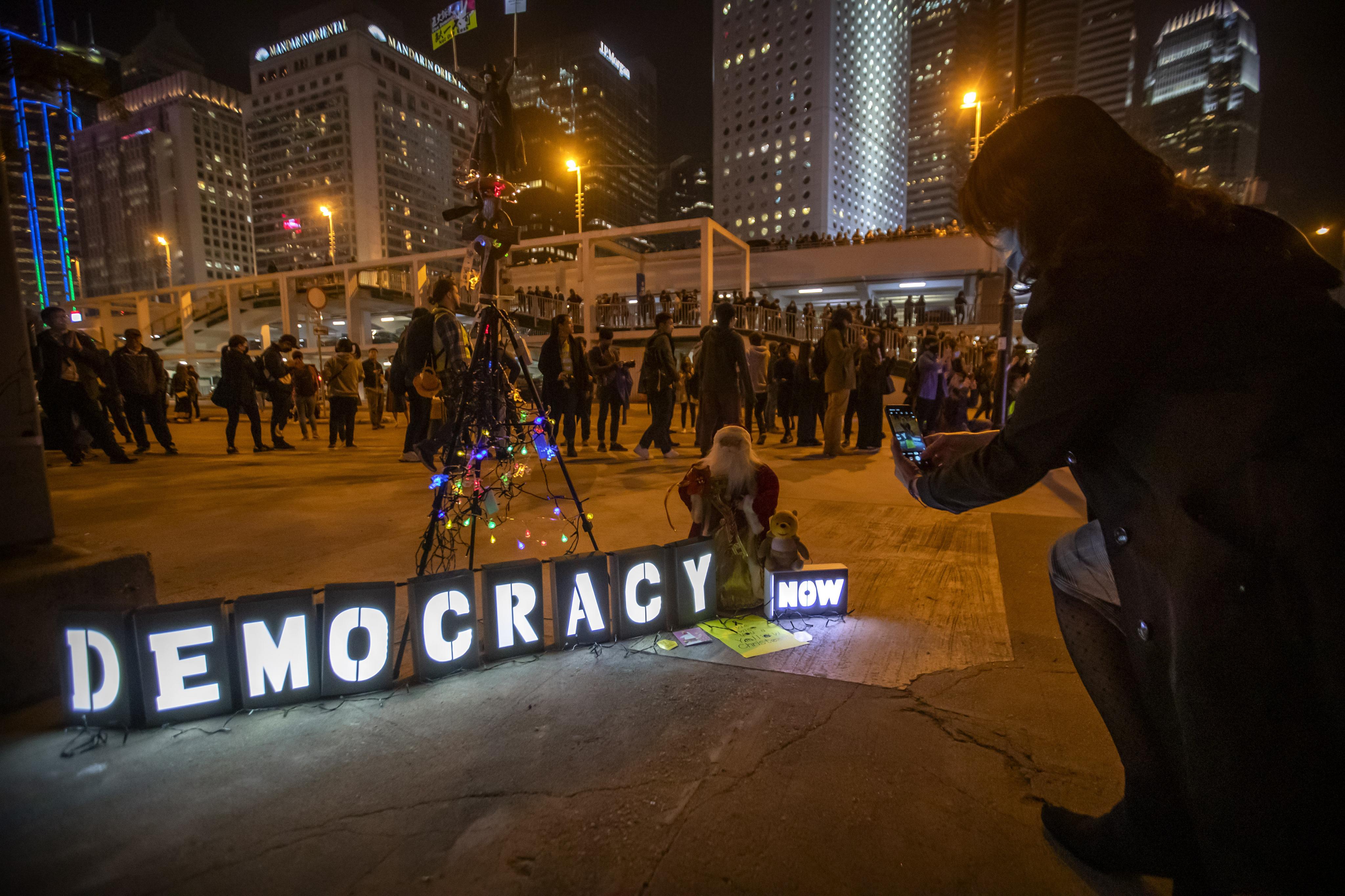US politics
Anti-Semitic Zionists

US President Donald Trump is obsessed with the state of Israel. Some analysts consider his policies the most pro-Israel in history. Trump basically endorses everything Israeli Prime Minister Benjamin Netanyahu does, though Netanyahu himself is a most controversial politician himself. For example, Trump has moved the US embassy to Jerusalem. He supports Israel’s illegal actions including the building of settlements on occupied land and the demolition of Palestinian homes.
While Trump’s pro-Israel bent is clear, the reasons are not obvious to many people. It is true, of course, that every US administration since the creation of Israel has been staunchly pro-Israel. Some observers say that is due to shared geo-strategic interests. Others point out lobbying efforts by Jewish Americans. Trump’s relationship with Netanyahu is uniquely unquestioning, and that is because some of his most important constituents like it that way.
Among Trump supporters, Christian Zionists are especially strong, whereas Jewish voters tend to oppose him.
Christian Zionism is a belief held by many Evangelicals, who number one quarter of the US Christian population, but adhere to a fundamentalist interpretation of the bible. Christian Zionists believe that Israel must gather all the Jews of the world, enlarge its territory, destroy Muslim holy places, and ethnically cleanse “the holy land” of all non-Jews. Many assume that this must be done to facilitate the return of Christ. Evangelicals of this kind support Israel, but not Judaism. In their worldview, Jews play a merely instrumental role. The implicit subtext is that Jews do not belong in American communities, because good Jews move to Israel. Their ideology is tinged with anti-Semitism, and it fits the picture that Trump himself has a pattern of using anti-Semitic memes (see essay by Benjamin Baltheser in D+C/E+Z e-Paper 2019/10, Focus section).
These things, however, are only rarely expressed explicitly. Nonetheless, there is a long history of anti-Semitic statements. For example, John Hagee, a prominent Christian Zionist, has declared that the Nazi genocide was ordained by God to send Jews “back to Israel.” He has also said Jews have only themselves to blame for anti-Jewish sentiments. The reason, in his view, is that they did not accept Jesus as the Messiah, and thus “birthed the seed of anti-Semitism that would arise and bring destruction to them for centuries to come”.
In any case, Christian Zionists are told that it is their religious duty to support Israel. They will be blessed if they do, and they risk being cursed if they don’t. They endorse the most pro-war, racist and right-wing forces in Israel. Accordingly, they want the US administration to do so too.
Up to a quarter of US citizens are Evangelicals. A recent survey by LifeWay Research showed that about 80 % of them basically appreciate Christian Zionism. Experts reckon that up to 30 million are Christian Zionists. They are not simply a religious group, but have become a hugely influential political movement. Robert O. Smith, a theologian, speaks of “political action informed by specifically Christian commitments, to promote or preserve Jewish control over the geographic area now comprising Israel and Palestine.”
Powerful lobby organisation
Several lobbying groups are pushing the agenda. The biggest, Christians United for Israel (CUFI) was founded by the above-mentioned Hagee in the 1990s and now claims to have 7 million members. Though the number is difficult to verify, CUFI is certainly the largest pro-Israel pressure group in the USA today. It dwarfs better known, mostly Jewish organisations such as the American Israel Public Affairs Committee (AIPAC) or J Street.
In July, CUFI held its annual summit in Washington DC. Its political clout was on full display. Vice President Mike Pence, a professed Christian Zionist, addressed the meeting, and so did Mike Pompeo, the secretary of state, and John Bolton, the national security adviser. Ted Cruz, Marco Rubio and other Republican senators were present as well.
CUFI currently has more political clout than Jewish organisations. CUFI wholeheartedly endorsed moving the US embassy to Jerusalem, for example, while many Jews did not. CUFI was in favour of Netanyahu’s Nation-State Bill in 2018, which codified Jewish primacy into Israel’s basic law. This constitutional amendment was controversial in Israel because it undermined the principle of equal citizenship. Therefore, most Jewish organisations in the USA opposed it, but the Trump administration stayed silent.
American Jews find themselves in an awkward position. Their stance on Israel tends to be more nuanced because they do not believe everything Netanyahu does or that everything Christian Zionists want is good for Israel. Netanyahu himself is controversial among Jews, not least because he recently called new elections simply because he otherwise would have had to face corruption charges.
Their problem is that Christian Zionists have usurped their influence on US policy toward Israel. Christian Zionists do not show any regard for peace, reconciliation and human rights in the holy land. They basically resent liberal political parties. All they are interested in is their interpretation of Biblical prophecies.
While Christian Zionists tend to hide their anti-Semitism, they are outspoken about resenting Muslims. Their hatred and fear of Arabs is an important reason for their support of Israel. Their Islamophobia was on full display at the CUFI summit in Washington. For example, the Palestinian refugee crisis was blamed on the “inhospitality of Arab nations”. The killing of children by the Israeli military was explained away with false accusations of Arabs using them “as human shields”. Such anti-Muslim rhetoric is nearly indistinguishable from mainstream American Islamophobia since the terror attacks on New York and Washington on 9/11 2001.
The public has mostly ignored Christian Zionism. Therefore, challenges have basically arisen from Christian groups so far. “It was mainly an internal Christian conversation,” says Alex Awad, a Palestinian Christian. He has founded a group called “Christ at the Checkpoint” which invites Evangelicals to Palestine so they can see with their own eyes what painful impact Christian Zionism has on Palestinian Christians. Awad and likeminded Christians emphasise Jesus’ message of love.
Popular opposition to Trump is growing. Due to Evangelicals’ deepening alliance with him, CUFI and similar groups are getting ever more exposure. A wider audience has become aware of their political potency. At this year’s CUFI summit, activists from various faith backgrounds – Jews, Muslims, Christians and secular activists – rallied in protest. They made it clear that refuting Christian Zionism is no longer merely an issue of inner-Christian debate.
Jonathan Brenneman is a Palestinian American Christian. He is a human rights advocate and lives in Elkhart, Indiana.
jonathanbrenneman15@gmail.com








